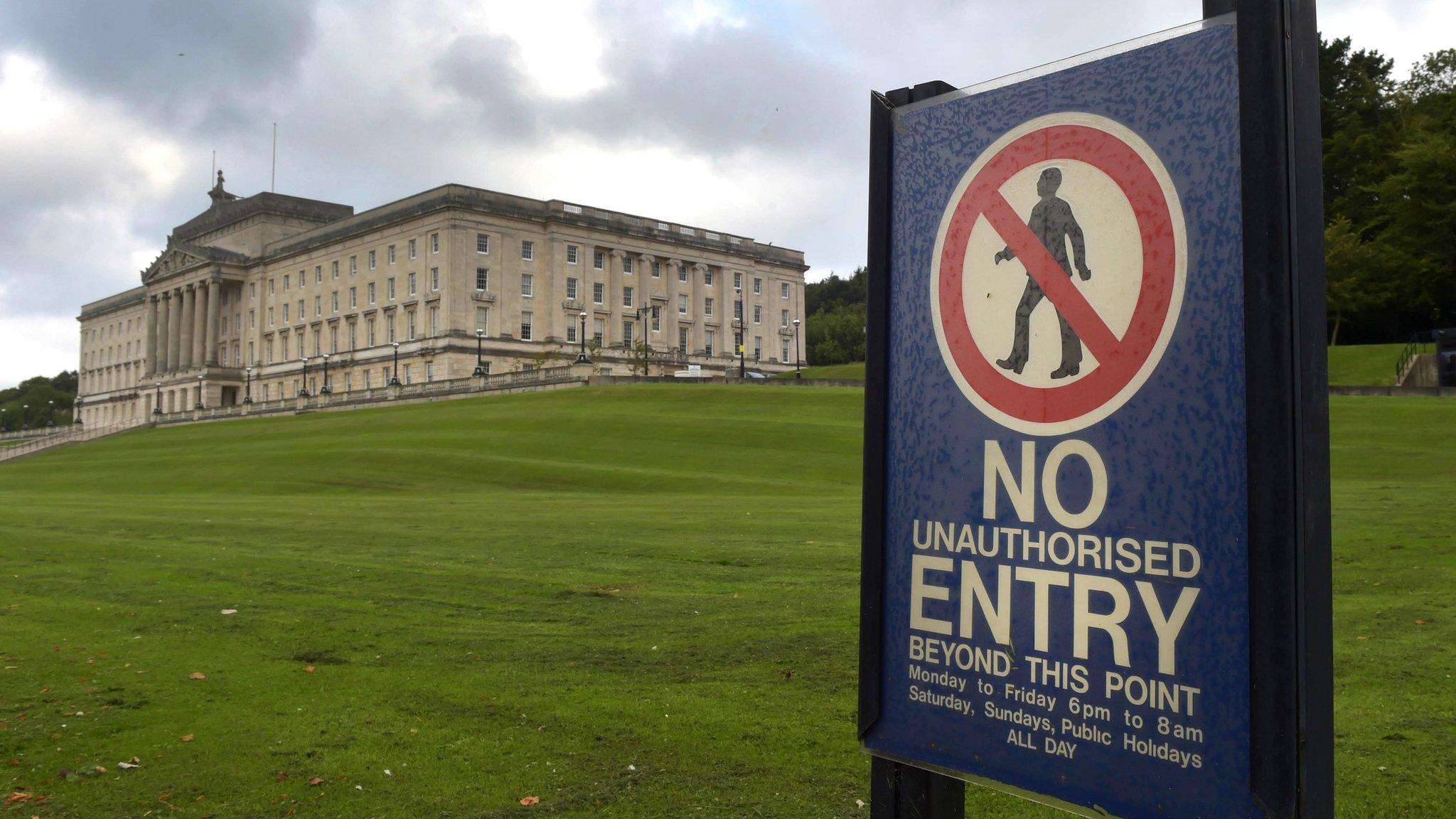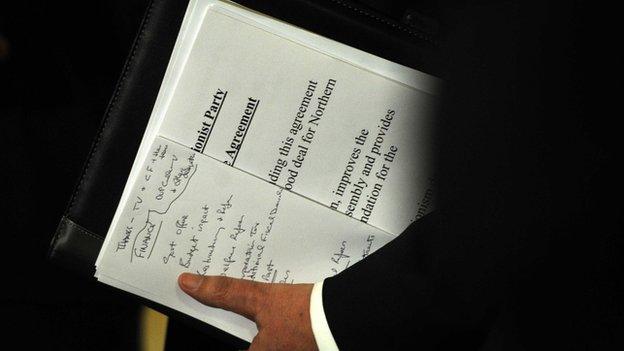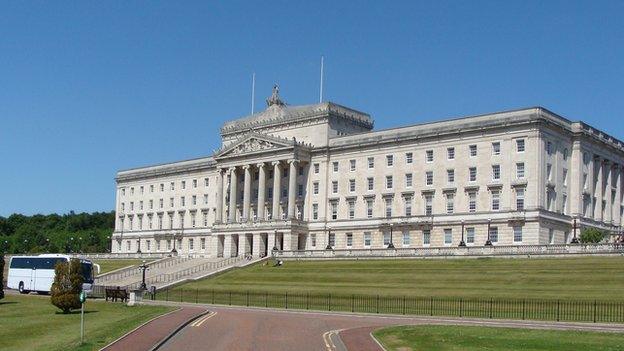Stormont deal: what are thorny issues for NI politicians?
- Published

The negotiations at Stormont have been going on for more than two months
They are negotiating - but what are the thorny issues on the table for Northern Ireland's parties and the British and Irish governments?
Talks aimed at resolving the political deadlock continue at Stormont.
The talks are focusing on welfare reform, finance, paramilitary activity and the legacy of the Troubles.
It is worth recalling that the Stormont House deal, agreed just under a year ago, fell apart over welfare reform.
Sinn Féin walked away from the deal saying mitigating measures for welfare recipients did not go far enough and were less than they understood had been agreed.
That interpretation is hotly disputed by the DUP.
So what was at issue?
The deal should have introduced changes already made across the rest of the UK:
The household benefits cap
Under-occupation charge for social housing tenants ('bedroom tax')
Time limiting of contributory employment support allowance (ESA) for those considered able to prepare for work ('Work Related Activity Group')
The replacement of Disability Living Allowance (DLA) with Personal Independence Payments (PIPs). This will likely be the biggest issue as one in 10 of the population in Northern Ireland are in receipt of DLA.
The introduction of Universal Credit (which rolls together a number of existing benefits.)
The Stormont House deal in essence agreed to introduce all of the above but with significant mitigating measures.
These were:
No bedroom tax (unless you refuse to move to "suitable" alternative property)
Transitional help for people moving from DLA to PIP (Those who receive less PIP than DLA will get a time-limited top-up)
A new system of financial help for low income people when they have a financial crisis (in reality a new version of Social Fund)
Flexibility in Universal Credit so payments can be split, paid every two weeks, and housing element paid direct to landlords
Supplementary payment scheme - mainly for those who would lose out through cuts to disability premium in Universal Credit - this was to be £125m over six years.
In total, all these measures would cost £564m over six years, the vast majority of that related to DLA/PIP.

What is the Welfare Reform Bill?
Responsibility for the welfare system is devolved to Northern Ireland. However, in practice, Northern Ireland has always operated in parity with the rest of the United Kingdom.
In 2012, the UK coalition government under David Cameron and Nick Clegg agreed a series of welfare changes known as the Welfare Reform Act.
However, Stormont could not agree to implement those changes through its own Welfare Reform Bill.

So why did the deal collapse?
It was really about the last of the five measures listed above.
Sinn Féin said they had been misled about how big the Supplementary Payment Scheme would need to be.
Martin McGuinness reckoned it would actually need another £200m to protect current and future claimants. Figures in Sinn Féin's Welfare Facts document suggest full compensation would require a "supplementary fund" of £346m over six years
The DUP said it would be "impossible" to offer the sort of protection that Sinn Féin were aiming for.
So what to look out for in any deal?
Have Sinn Féin got any more money for mitigating measures?
Recall the party's mantra of protecting "children with disabilities, adults with severe disabilities, the long-term sick" - that is really about specific mitigation for the reduction of disability premiums under Universal Credit, the time limiting of contributory ESA and the household benefit cap.
Will there be anything specific they can point to on those benefits?
Will the party stick to the position that future as well as existing claimants must be protected?
And how will the Tax Credits issue play into any pledges on mitigation?
- Published13 November 2015

- Published17 November 2015

- Published16 November 2015

- Published23 December 2014

- Published26 May 2015
